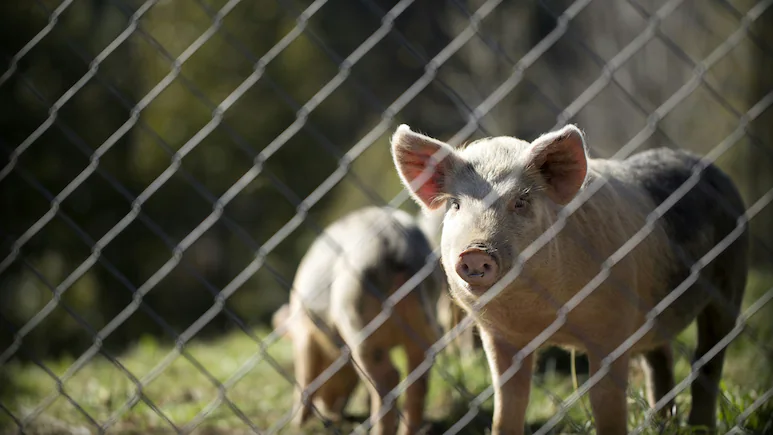Chinese doctors have achieved a groundbreaking medical milestone by transplanting a liver from a genetically modified pig into a brain-dead human, marking the first such procedure in history. This advancement raises hopes for future life-saving organ donation options.
Pigs have emerged as the most viable animal organ donors, with pig kidneys and hearts already successfully transplanted into living patients in the United States. However, liver transplants have proven more challenging, and until now, no such procedure had been tested inside a human body.
Given the rising global demand for liver transplants, researchers hope gene-edited pig livers could serve as temporary support for critically ill patients awaiting human donors. The latest breakthrough was detailed in a study published in the journal Nature by doctors from the Fourth Military Medical University in Xi’an, China.
The Groundbreaking Procedure
On March 10, 2024, a liver from a genetically modified miniature pig—engineered with six specific gene edits to enhance compatibility—was transplanted into a brain-dead adult patient at a hospital in Xi’an. The procedure was carried out following strict ethical guidelines, and the trial lasted for ten days before being terminated at the request of the patient’s family.
Unlike a full transplant, this procedure involved an auxiliary transplant, meaning the pig liver was implanted alongside the patient’s original liver. The goal was to assess whether the pig organ could act as a “bridge organ,” providing temporary support for patients awaiting a human donor.
Throughout the 10-day period, the medical team closely monitored the pig liver’s key functions, including blood flow, bile production, and immune response. The liver functioned effectively, producing bile and secreting albumin—a crucial protein—according to study co-author Lin Wang from the Xi’an hospital.
Implications and Future Research
While experts have hailed the achievement as a major step forward, they caution that this early-stage experiment does not yet confirm whether pig livers could fully replace human livers in transplants. Unlike hearts, which primarily pump blood, livers perform multiple complex functions, such as filtering toxins, breaking down drugs and alcohol, and producing bile.
Lin noted that although the pig liver performed well, it produced significantly less bile and albumin compared to a human liver. To assess long-term viability, further research is needed, including extending the duration of such transplants beyond 10 days. The next phase of the study will involve transplanting a genetically modified pig liver into a living human patient.
A Step Toward the Future
Experts worldwide have acknowledged the significance of this breakthrough. Peter Friend, a transplantation professor at Oxford University who was not involved in the study, described the results as “valuable and impressive.” However, he stressed that genetically modified pig livers are not yet a direct replacement for human donor livers. Instead, they may serve as temporary life-saving support for patients experiencing liver failure.
The Chinese research team credited American scientists for their contributions to the field. Lin highlighted the importance of international collaboration, acknowledging that significant knowledge was gained from research conducted in the United States.
In a related development, researchers at the University of Pennsylvania previously attached a pig liver to a brain-dead patient, though the organ remained outside the body rather than being transplanted. Meanwhile, two U.S. patients who received pig heart transplants ultimately did not survive.
However, progress continues. In a promising sign, 53-year-old Towana Looney from Alabama successfully received a pig kidney transplant on November 25, 2024, and has since returned home.
As research advances, genetically modified pig organs could become a crucial solution for addressing the global organ shortage, potentially saving countless lives in the future.










